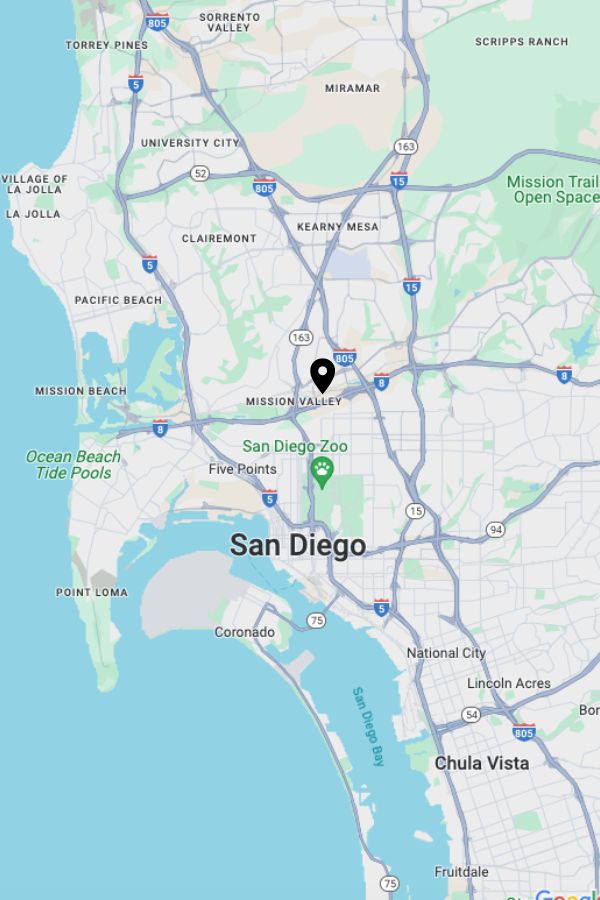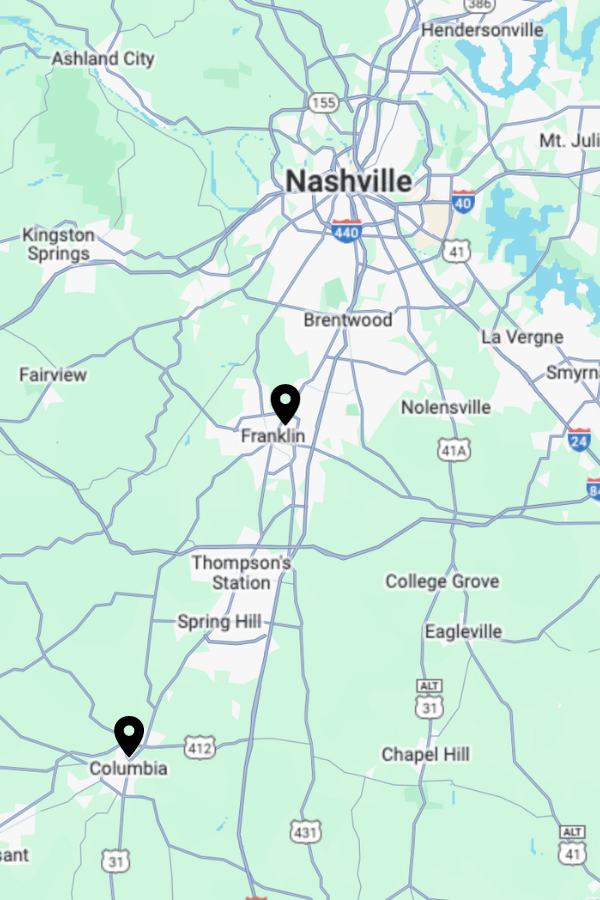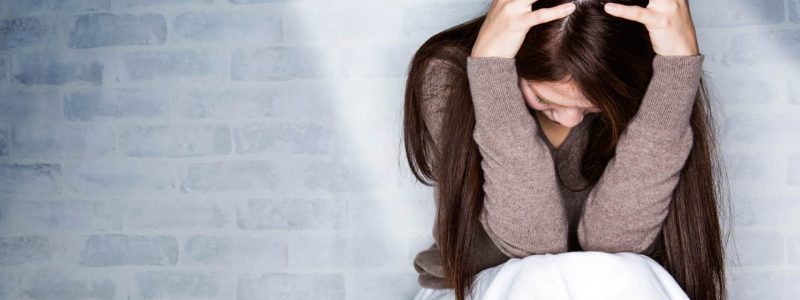Apex Recovery offers specialized rehab facilities for Dual Diagnosis Addiction and Mental Health in California and Tennessee. With a holistic approach, our centers handle substance abuse and mental health disorders simultaneously, providing integrated treatment plans tailored to your unique needs, for lasting recovery and wellness.
Apex Drug and Alcohol Addiction Recovery Center is affiliated with many health insurance providers and welcomes insurance coverage for residential treatment programs. Our in-network status with these providers simplifies access to comprehensive care, ensuring you can receive the support you need for mental health and addiction recuperation without financial barriers hindering their path to wellness.

Our Treatment Approach
Apex Recovery San Diego believes that thorough assessment and treatment of co-occurring disorders is crucial for maximizing treatment success. In the past, dually diagnosed patients were treated separately for addiction and mental health issues, depriving them of the necessary care. Fortunately, dual diagnosis therapy now addresses both mental disorders and substance abuse as part of a continuum.
Treating dual diagnosis is complex, as there are various mental health disorders and a multifaceted relationship with addiction. Individuals with dual diagnosis may be in denial due to distorted perceptions caused by their mental condition. The symptoms of their disorder can be overwhelming, leading them to rely on alcohol and substances for relief.
Reclaiming your life requires professional help to rebuild trust and hope in recovery, especially if previous rehabilitation attempts were unsuccessful. Relying on qualified professionals can make the recovery process more systematic and likely to succeed.
Free Addiction Assessment
Schedule a free, confidential assessment with a licensed clinician. Apex Recovery can check your insurance coverage levels for drug and alcohol addiction, and mental health treatment.
What is Dual Diagnosis Addiction and Mental Health Treatment Near Me?
Dual Diagnosis Addiction and Mental Health Treatment facilities offer comprehensive care for people struggling with both substance abuse and mental health disorders. These dual diagnosis facilities provide integrated treatment plans addressing the complex relationship between addiction and mental health issues. By addressing both aspects simultaneously, you can receive holistic care to achieve lasting healing and improved mental well-being.
To find Dual Diagnosis treatment near you, consider researching local rehab facilities, contacting mental health professionals or organizations, or utilizing online directories specialized in addiction and mental health services: you can search for “dual diagnosis treatment centers near me” or skip that step and call the experts at Apex. We’re at (877) 881-2689 or you can contact us online.
What is Dual Diagnosis Inpatient & Residential Treatment?
Dual Diagnosis Inpatient Treatment provides intensive care within a residential setting for people dealing with co-occurring substance abuse and mental health disorders. Inpatient programs offer 24/7 medical supervision, structured therapies, and medication management, ensuring round-the-clock support for patients in a controlled environment. This approach allows for focused treatment, treating dual diagnosis conditions through individualized care plans and therapeutic interventions.
By immersing patients in a supportive and secure setting, inpatient treatment facilitates comprehensive assessment, stabilization, and rehabilitation, for sustained recovery and improved mental well-being. The inpatient aspect ensures continuous monitoring and immediate access to professional assistance, maximizing the effectiveness of treatment interventions and promoting long-term success in managing dual diagnosis challenges.
What is Dual Diagnosis Intensive Outpatient (IOP) Treatment?
Dual Diagnosis Intensive Outpatient (IOP) Treatment offers a flexible yet structured approach to treating both substance use disorders and mental health issues, without the need for 24/7 supervision. This model allows patients to live at home or in sober living environments while participating in scheduled therapy sessions multiple times a week, typically involving group therapy, individual counseling, and educational programs.
IOPs are designed to accommodate the patient’s daily commitments to work, school, or family, providing a balance between intensive care and day-to-day responsibilities in the area. This format helps people apply coping strategies and maintain recovery efforts in their everyday environment, promoting independence and long-term wellness in managing dual diagnosis conditions.
What is Dual Diagnosis Partial Hospitalization (PHP) Treatment?
Dual Diagnosis Partial Hospitalization (PHP) Treatment is a level of care for people with co-occurring substance abuse and mental health disorders that bridges the gap between inpatient/residential treatment and intensive outpatient programs (IOP). In PHP, patients spend several hours a day, typically 5 to 7 days a week, in a hospital-based or clinical setting receiving comprehensive therapeutic services.
This model allows for an intensive, structured treatment experience similar to inpatient care, but patients return home or to a sober living environment at the end of the day. PHP focuses on stabilizing mental health conditions, advancing recovery from substance abuse, and developing coping strategies, providing a high level of support and dual diagnosis therapy while enabling people to maintain some personal and professional responsibilities.
Addiction Statistics on Multiple and Co-occurring Disorders
In 2021, the misuse of opioids affected over 9 million individuals aged 12 and older, while 61.2 million people in the same age group used illicit drugs. Nearly 40% of young adults aged 18-25 used illicit drugs. Approximately 46.3 million Americans experienced a Substance Use Disorder (SUD), with 29.5 million having Alcohol Use Disorder.
Alarmingly, 94% of those with SUD did not receive treatment, and 1 in 5 adolescents had a Major Depressive Episode. Moreover, 13.5% of young adults faced both SUD and mental illness, while nearly 25% of adults had a mental illness, and 46% of young adults experienced either SUD or mental illness. Despite the prevalence, only 34.5% of individuals with co-occurring conditions received mental health treatment, with 9.1% unsure where to seek help. More than a quarter of adults with serious mental health issues also battled substance abuse problems, highlighting the critical need for comprehensive support and treatment options.

- Please complete and send the form below.
- One of our staff members will contact your insurer to check your coverage.
- We will contact you promptly with the results and to discuss the next steps.
Insurance Verification
"*" indicates required fields
Finding the Ideal Dual Diagnosis Rehab Centers Near Me
Discovering the perfect Dual Diagnosis Rehab Centers nearby is crucial for effective treatment. Explore top-notch nearby options in California and Tennessee to kickstart your journey toward recovery. Contact Apex Addiction Recovery Center at (877) 881-2689 to learn more and embark on the path to across-the-board care fit to your needs.

Dual Diagnosis Treatment Centers in California (CA)
Apex Addiction Recovery Center in San Diego, California stands out with its premier Dual Diagnosis Treatment Center located in SoCal. Located at 2810 Camino del Rio S #106, San Diego, CA 92108, this facility is dedicated to providing specialized care for people facing co-occurring disorders dual diagnosis, ensuring accessible, expert treatment within the Golden State.
Apex Recovery San Diego: 2810 Camino del Rio S #106 San Diego, CA 92108
Free Addiction Assessment
Schedule a free, confidential assessment with a licensed clinician. Apex Recovery can check your insurance coverage levels for drug and alcohol addiction, and mental health treatment.

Dual Diagnosis Treatment Centers in Tennessee (TN)
Apex Addiction Recovery Center in Tennessee offers its exceptional Dual Diagnosis Treatment services in two key locations. The Franklin center, situated at 4601 Carothers Pkwy STE 250A, Franklin, TN 37067, and the Columbia facility, located at 2710 Trotwood Ave Suite A, Columbia, TN 38401, showcase Apex Alcohol and Drug Addiction Recovery Center’s commitment to providing accessible and comprehensive care.
Apex Recovery Franklin
4601 Carothers Pkwy STE 250A
Franklin, TN 37067
Apex Recovery Columbia
2710 Trotwood Ave STE A & B
Columbia, TN 38401
Free Addiction Assessment
Schedule a free, confidential assessment with a licensed clinician. Apex Recovery can check your insurance coverage levels for drug and alcohol addiction, and mental health treatment.
What Does Co-occurring Disorders Treatment Entail?
Co-occurring Disorders Treatment entails the complex interaction between substance abuse and mental health disorders concurrently. This integrated approach recognizes that these conditions often aggravate each other, requiring comprehensive and customized dual diagnosis interventions. Treatment typically begins with a thorough assessment to identify the specific substance use and mental health issues present, followed by the development of a personalized treatment plan.
Therapeutic interventions may include a combination of medication management, individual and group therapy, psychoeducation, and skill-building exercises aimed at managing symptoms, reducing substance use, and improving overall well-being. Additionally, holistic approaches such as mindfulness practices, lifestyle changes, and family involvement may be incorporated to support long-term recovery.
How Dual Diagnosis Treatment Works
Dual diagnosis treatment involves a comprehensive approach that addresses both the addiction and the co-occurring mental health disorder. This can include a combination of therapies, medication management, and support from trained professionals.
At Apex Recovery San Diego, our dual diagnosis treatment program focuses on personalized care that addresses each individual’s unique needs. Our team works closely with clients to develop a treatment plan that targets both the substance abuse and the underlying mental health issue. We understand that every person’s journey to recovery is different, and we are committed to providing individualized care that promotes lasting change.
Benefits of Dual Diagnosis Treatment
Dual diagnosis treatment offers numerous benefits for individuals struggling with co-occurring disorders. Some of the main advantages include:
- Simultaneous treatment of both addiction and mental health issues
- Greater understanding of the underlying causes of substance abuse
- Improved mental health outcomes and overall well-being
- Reduced risk of relapse and improved long-term recovery
- A more holistic approach to treatment that addresses the whole person, not just their addiction
These benefits highlight the importance of addressing both addiction and mental health in a dual diagnosis treatment program. By treating both issues concurrently, individuals have a better chance of achieving lasting recovery and improving their overall quality of life.

What is Treated at a Dual Diagnosis Inpatient Treatment Center?
At a Dual Diagnosis Inpatient Treatment Center, people receive specialized care for a range of conditions. These dual diagnosis addiction treatment centers offer tailored programs for Substance Use Disorders (SUDs), mental health disorders, co-occurring disorders, and behavioral addictions, ensuring comprehensive treatment approaches that address the intricacies of each diagnosis and promote holistic recovery.
Substance Use Disorders (SUDs) Addiction Rehab Programs
Substance Use Disorders (SUDs) Addiction Rehab Programs are designed to address the unique challenges posed by different substances through tailored treatment plans. For Alcohol Use Disorder, programs focus on medically supervised detox, behavioral therapies, and relapse prevention. Opioid Use Disorder treatments often include medication-assisted therapy (MAT) and counseling to manage withdrawal and cravings.
Rehab for Cocaine, Methamphetamine, and Cannabis Use Disorders incorporates cognitive-behavioral therapy to identify triggers and develop coping strategies, alongside motivational techniques. Prescription Drug Abuse treatment emphasizes safe detoxification, medication management, and education to prevent misuse, to address both the physical and psychological facets of addiction.
These rehab programs at dual diagnosis inpatient treatment centers offer a holistic approach to recovery, supporting people in overcoming addiction and promoting long-term sobriety through a range of specialized services.
Mental Health Disorders Therapy and Treatment Programs
Mental Health Disorders Therapy and Treatment Programs offer targeted interventions for a variety of conditions, using evidence-based approaches to promote recovery and improve quality of life.
Depression treatments typically combine antidepressant medication with psychotherapy, like cognitive-behavioral therapy (CBT), to help alleviate symptoms. Anxiety disorders, such as generalized anxiety disorder and panic disorder, are often managed with CBT and medications to reduce anxiety levels.
Bipolar disorder requires a mix of mood stabilizers and psychotherapy to control mood fluctuations, while Schizophrenia treatments focus on antipsychotic medications complemented by psychosocial support to enhance daily functioning.
For Post-traumatic stress disorder (PTSD), trauma-focused psychotherapies and possibly medications are used to help individuals process trauma and relieve symptoms. Obsessive-compulsive disorder (OCD) responds well to exposure and response prevention, a form of CBT.
Borderline Personality Disorder is primarily treated with dialectical behavior therapy (DBT), which teaches skills to manage emotions and behaviors effectively. Some cases might also benefit from medication to address co-occurring conditions.
These programs are carefully designed to address the specific challenges and needs of people with mental health disorders, emphasizing personalized care and comprehensive support.
Co-occurring Disorders Therapy and Treatment Programs
Co-occurring Disorders Therapy and Treatment Programs address the intricate relationship between substance use disorders and mental health conditions, providing tailored care for people facing dual diagnoses.
For instance, therapy for depression and alcoholism combines antidepressants with strategies for sobriety. Anxiety and opioid dependence treatments integrate medication and coping skills. Bipolar disorder and cocaine addiction programs blend mood stabilization with substance abuse counseling.
Similarly, PTSD and substance abuse therapy focuses on trauma and addiction simultaneously. Schizophrenia and coexisting substance use treatment includes medication and dual diagnosis counseling for both conditions. These programs offer comprehensive support to promote recovery from dual diagnoses.
Rehab Treatment Programs for Behavioral Addictions
Rehab Treatment Programs for Behavioral Addictions are tailored interventions designed to address compulsive behaviors that significantly disrupt people’s lives. These programs target specific behavioral addictions such as gambling, internet/gaming, and sex addiction, acknowledging these compulsions’ impact on mental health and daily functioning.
Gambling addiction treatment typically incorporates CBT to identify and challenge distorted thoughts and beliefs related to gambling. Through therapy and group sessions, people learn to recognize triggers, develop coping mechanisms, and rebuild their lives without the harmful influence of compulsive gambling.
Internet or gaming addiction rehab programs focus on reducing excessive screen time and promoting healthier internet habits. Therapeutic approaches often include CBT to address underlying issues driving compulsive internet use, alongside group therapy and family counseling to improve social skills and rebuild relationships.
Similarly, sex addiction treatment emphasizes individual and group therapy to address underlying emotional and psychological factors contributing to compulsive sexual behaviors. These programs foster healthier attitudes toward sexuality and relationships, equipping people with the tools and support needed to establish boundaries and make positive lifestyle changes. Through comprehensive therapy and support, people can break free from the cycle of addiction and build fulfilling, balanced lives.

How Much Does Dual Diagnosis Treatment Cost Without Health Insurance Coverage?
Dual Diagnosis Treatment costs can vary significantly depending on several factors, including the level of care needed, the duration of treatment, and the specific services provided. Without health insurance coverage, people may face substantial out-of-pocket expenses for rehab programs, which can range from several thousand to tens of thousands of dollars per month.
Inpatient treatment tends to be more expensive than outpatient options due to the around-the-clock care and comprehensive services provided. Additionally, the cost of medications, therapy sessions, and other ancillary services can further contribute to the overall expense. However, many dual diagnosis treatment centers – including Apex – offer payment plans or sliding scale fees based on income to help make treatment more affordable for those without insurance coverage.
More about the Dual Diagnosis Residential Treatment Center Admissions Process?
The admissions process for a Dual Diagnosis Residential Treatment Center typically begins with an initial assessment, which may include a comprehensive evaluation of the individual’s physical health, mental health, substance use history, and any co-occurring conditions. Once admitted, patients undergo a thorough intake process, which involves completing paperwork, providing medical history and insurance information, and discussing treatment goals and expectations.
Following intake, people are typically assigned to a primary therapist and medical team who will oversee their care throughout their stay. Treatment plans may include a combination of individual therapy, group therapy, medication management, psychoeducation sessions, and holistic therapies customized to address both mental health and substance use issues concurrently. Throughout their residential stay, people receive round-the-clock support and supervision in a structured and supportive environment, helping the healing process and encouraging them to work towards sustainable recovery.
Long-Term Dual Diagnosis Rehab Programs Near Me
Researching long-term Dual Diagnosis Rehab Programs is vital for those seeking treatment for co-occurring disorders. These programs offer varying lengths of stay, from intensive short-term options to extended care for deeper healing. Below, we dive into the specifics of 30-day, 60-day, 90-day, and 180-day co-occurring disorder programs, each designed to provide the support and treatment necessary for sustained recovery.
30-Day (One Month) Co-occurring Disorder Programs
30-Day (One Month) Co-occurring Disorder Programs provide intensive treatment and support for people struggling with dual diagnoses. These programs typically include detoxification, therapy sessions, medication management, and relapse prevention strategies. While shorter in duration, they offer a focused approach to addressing co-occurring disorders and laying the foundation for continued recovery beyond the initial month of treatment.
60-Day (Two Months) Co-occurring Disorder Programs
60-Day (Two Month) Co-occurring Disorder Programs extend the care and support provided in shorter programs. Over two months, people receive a more in-depth treatment experience, which includes a comprehensive assessment, personalized therapy sessions, group therapy, and continued medical management. This period allows for a deeper exploration of the underlying issues contributing to the co-occurring disorders.
The extended timeframe of 60-day programs facilitates the development of coping strategies, behavioral changes, and lifestyle adjustments necessary for long-term recovery. Patients have the opportunity to engage in various Integrated behavioral health modalities, such as cognitive-behavioral therapy, dialectical behavior therapy (DBT), and motivational interviewing, alongside holistic approaches like mindfulness and stress management techniques.
90-Day (Three Months) Co-occurring Disorder Programs
90-Day (Three Month) Co-occurring Disorder Programs are considered the gold standard for many dealing with dual diagnoses, offering ample time to deeply address both mental health and substance use disorders. This duration supports thorough detoxification, extensive therapy, and skill-building for relapse prevention. It builds a stable recovery foundation, significantly improving long-term outcomes by allowing for sustained personal growth and healing.
180-Day (Six Months) Co-occurring Disorder Programs
180-Day (Six Months) Co-occurring Disorder Programs provide extensive, rigorous treatment for people grappling with dual diagnoses. This longer duration allows for comprehensive assessment, extensive therapy, and gradual reintegration into daily life. With a focus on sustainable recovery, these programs offer ample time for people to develop coping skills, address underlying issues, and establish supportive networks for continued success.
The extended timeframe enhances the likelihood of long-term recovery by providing a structured and supportive environment for healing and growth.

Short-Term Dual-Diagnosis Treatment Centers
Short-term dual-diagnosis rehabilitation centers cater to individuals needing quick, intensive care for co-occurring disorders, offering programs from weekend retreats to 21-day stays. These options provide rapid stabilization and a foundation for ongoing care, ideal for those balancing treatment with daily commitments.
Weekend Co-occurring Disorder Programs
Weekend Co-occurring Disorder Programs offer a condensed, intensive treatment option for people seeking support for dual diagnoses within a very short timeframe. Designed for rapid intervention and stabilization, these programs focus on immediate therapeutic strategies and planning for long-term care, making them suitable for those with limited availability but in need of urgent assistance.
3-Day, 5-Day, and 7-Day Co-occurring Disorder Programs
3-Day, 5-Day, and 7-Day Co-occurring Disorder Programs provide a brief yet intensive treatment option, focusing on rapid assessment, stabilization, and the initiation of a treatment plan for people with dual diagnoses. These short-term programs are tailored to offer immediate support and therapeutic interventions. They are especially beneficial for those seeking quick, effective assistance without the commitment of an extended stay.
10-Day, 14-Day, 21-Day Co-occurring Disorder Programs
10-Day, 14-Day, and 21-Day Co-occurring Disorder Programs offer an extended period of intensive care compared to shorter interventions, allowing for a more thorough assessment and beginning of treatment for dual diagnoses. These programs balance the need for quick intervention with the opportunity for deeper therapeutic work, setting the stage for long-term recovery strategies and support.
Signs, Symptoms and Conditions of Co-Occurring
Signs and symptoms of co-occurring disorders can vary widely but often include noticeable changes in behavior, mood, and cognitive function. People may exhibit increased withdrawal from social situations, erratic behavior, unexplained changes in weight, sleep disturbances, and a loss of interest in activities they once enjoyed.
Conditions like depression, anxiety, bipolar disorder, and schizophrenia may coexist with substance abuse involving alcohol, prescription drugs, or illegal substances. The complexity of co-occurring disorders lies in their intertwined nature, making it essential to treat both the mental health and substance use components for effective recovery.

Drug & Alcohol Substance Misuse and Mental Health Disorders Statistics
- Over 9 million people 12 and older misused opioids in 2021
- 61.2 million people (aged 12+) used illicit drugs
- Almost 40% of young adults (18-25 years old) used illicit drugs
- 46.3 million people in the U.S. had an SUD
- 29.5 million people had Alcohol Use Disorder
- 94% of Americans with SUD did not receive treatment
- 1 in 5 adolescents had a Major Depressive Episode in 2021
- 13.5% of young adults had both a SUD and mental illness
- Almost 25% of adults 18+ had a mental illness
- 46% of young adults had either a SUD or mental illness
- 34.5% of those with co-occurring conditions only received mental health treatment
- 9.1% of those with co-occurring conditions received care for both
- 11.5% of those with co-occurring conditions who did not receive care didn’t know where to look for help
- More than 25% of adults with serious mental health problems also had a substance abuse problem
Sources:
hhs.gov
Nih.gov
samhsa.gov





